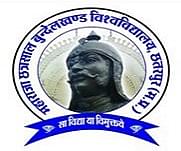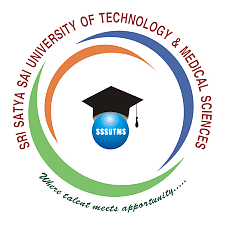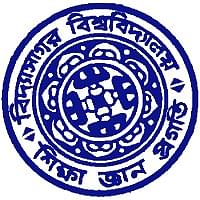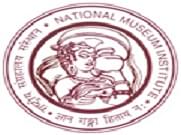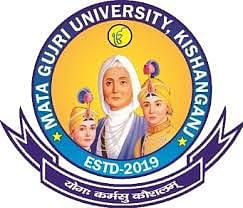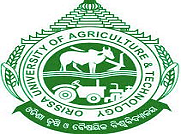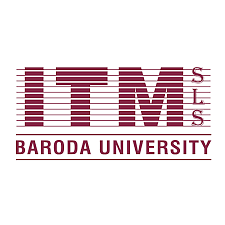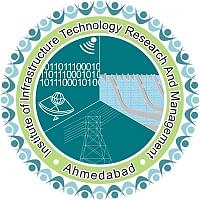Introduction about Ph. D in Hotel Management
A PhD in Hotel Management from top college is an advanced academic program designed for individuals who wish to
pursue high-level careers in academia, research, or executive positions within
the hospitality industry. This doctoral degree emphasizes both theoretical and
practical aspects of hotel management, preparing graduates to contribute
significantly to the field through research, teaching, and leadership.
Program Structure and Curriculum
Core Courses: These typically cover advanced topics in
hotel and hospitality management, including strategic management, service
quality, consumer behaviour, and organizational behaviour.
Research
Methodology: Courses in
quantitative and qualitative research methods are fundamental, equipping
students with the skills needed to conduct rigorous academic research.
Specializations: Depending on the institution, students may
have the option to specialize in areas such as tourism management, event
management, sustainable hospitality, or culinary arts.
Dissertation: The cornerstone of a PhD program is the
dissertation, an original piece of research that contributes new knowledge to
the field. This involves extensive research, data analysis, and writing under
the supervision of faculty advisors.
Teaching Experience: Many programs require or offer
opportunities for doctoral candidates to gain teaching experience, which is
invaluable for those pursuing academic careers.
Career Prospects
Graduates with a
PhD in Hotel Management can pursue a variety of career paths:
Academic Positions: Many graduates become professors,
lecturers, or researchers at universities and colleges, contributing to
academic knowledge and teaching the next generation of hospitality
professionals.
Research and
Development: Graduates may
work in research institutions, think tanks, or consultancy firms, focusing on
developing new theories, strategies, and practices in hospitality management.
Executive Roles: Some graduates move into high-level
managerial or executive roles within the hospitality industry, leveraging their
advanced knowledge to drive innovation and improve operations in hotels,
resorts, and other hospitality enterprises.
Policy and Planning: Opportunities also exist in government and
international organizations where experts in hospitality management contribute
to policy development, tourism planning, and sustainable development
initiatives.
Benefits of a PhD in Hotel Management
Expertise: Graduates gain deep, specialized knowledge
that sets them apart in the competitive field of hospitality management.
Leadership Skills: The program hones leadership and strategic
thinking skills essential for top-tier positions.
Research
Contributions: PhD holders
contribute to the body of knowledge in hospitality, influencing practices and
policies.
Networking: The program often provides extensive
networking opportunities with industry leaders, academics, and peers.
In summary, a PhD
in Hotel Management is a rigorous and rewarding path for those committed to
advancing the hospitality industry through research, teaching, and high-level
professional practice. It opens doors to influential roles in academia and the
industry, allowing graduates to make significant contributions to the field.
What is admission process for Ph. D in Hotel
Management ?
The admission process for a PhD in Hotel Management typically involves several steps,
designed to assess the academic readiness and research potential of prospective
candidates. Here’s a detailed overview of the process:
1. Research and Choose Programs
Identify Programs: Start by researching universities and
institutions that offer a PhD in Hotel Management or related fields such as
Hospitality Management or Tourism Management. Look for programs that align with
your research interests and career goals.
2. Meet Eligibility Criteria
Educational
Background: Most programs
require applicants to have a master’s degree in hotel management, hospitality
management, or a related field. Some programs may accept candidates with a
strong academic background in business, management, or social sciences.
Academic
Performance: A strong
academic record is essential. Most programs require a minimum GPA, often around
3.0 on a 4.0 scale.
Work Experience: Some programs prefer or require applicants
to have relevant professional experience in the hospitality industry.
3. Prepare Application Materials
Application Form: Complete the university’s application
form, which is usually available online.
Transcripts: Submit official transcripts from all
post-secondary institutions attended.
Curriculum Vitae
(CV): Provide a detailed CV
highlighting your academic background, professional experience, research
activities, and publications (if any).
Statement of
Purpose (SOP): Write a
compelling SOP outlining your research interests, career goals, and reasons for
pursuing a PhD in Hotel Management. Explain how your background has prepared
you for the program and how the program will help you achieve your objectives.
Research Proposal: Some programs require a research proposal
that outlines your intended research topic, objectives, methodology, and
significance. This demonstrates your ability to undertake independent research.
Letters of
Recommendation: Obtain 2-3
letters of recommendation from academic advisors, professors, or professional
supervisors who can attest to your academic abilities, research potential, and
professional experience.
Test Scores: Submit scores for standardized tests such
as the GRE or GMAT, if required by the program. Some programs may also require
proof of English language proficiency (e.g., TOEFL or IELTS) for non-native
speakers.
4. Application Submission
Application Fee: Pay the application fee, which varies by
institution.
Submit Application: Ensure all components of your application
are submitted before the deadline. Many universities use online application
portals.
5. Interview Process
Interview: If shortlisted, you may be invited for an
interview. This can be conducted in person, over the phone, or via video
conferencing. The interview assesses your motivation, research interests, and
suitability for the program.
6. Admission Decision
Review Process: The admissions committee reviews
applications, taking into account academic qualifications, research potential,
professional experience, and alignment with the program’s strengths and faculty
expertise.
Notification: You will be notified of the admission
decision. Successful candidates will receive an offer letter outlining the
terms of admission, including funding details if applicable.
7. Acceptance and Enrollment
Accept Offer: If you receive an offer, confirm your
acceptance by the deadline specified in the offer letter.
Enroll: Complete any additional administrative
steps required for enrollment, such as submitting a deposit, registering for
courses, and attending orientation sessions.
Additional Considerations
Funding: Explore funding options such as
scholarships, grants, teaching assistantships, or research assistantships. Many
PhD programs offer financial support to cover tuition and living expenses.
Visa and
Immigration: International
students will need to apply for a student visa. Follow the university’s
guidelines and provide the necessary documentation for visa application.
Summary
The admission
process for a PhD in Hotel Management is comprehensive and competitive,
designed to identify candidates with strong academic backgrounds, relevant
professional experience, and a clear research vision. Preparing a thorough and
compelling application can significantly enhance your chances of acceptance
into a prestigious program.
What is eligibilit process for Ph. D in Hotel
Management ?
The eligibility process for PhD in Hotel Management involves meeting specific academic and
professional criteria set by the admitting institution. Here are the common
eligibility requirements:
1. Academic Qualifications
Master’s Degree:
Most programs
require applicants to hold a master’s degree in Hotel Management, Hospitality
Management, or a closely related field.
Some programs may
accept applicants with a master’s degree in Business Administration (MBA),
Tourism Management, or other relevant disciplines if they have sufficient
coursework or experience in hospitality management.
Bachelor’s Degree:
While a master's
degree is typically required, some programs might consider exceptional
candidates who hold only a bachelor’s degree, provided they have extensive
professional experience and a strong academic record.
2. Academic Performance
GPA:
A strong academic
record is essential. Many programs require a minimum GPA, often around 3.0 on a
4.0 scale.
Higher GPA
requirements may be set for competitive programs.
3. Professional Experience
Industry Experience:
Relevant
professional experience in the hospitality industry can be a significant
advantage. Some programs may prefer or require applicants to have several years
of work experience in hotel management or a related field.
Experience in
leadership or managerial roles can be particularly beneficial.
4. Research Experience
Research Background:
Previous research
experience, demonstrated through publications, research projects, or a master’s
thesis, is highly valued.
Applicants should
show evidence of their ability to conduct independent research.
5. Standardized Test Scores
GRE or GMAT:
Some programs
require scores from standardized tests like the Graduate Record Examination
(GRE) or the Graduate Management Admission Test (GMAT).
Specific score
requirements vary by institution.
6. Language Proficiency
English Proficiency:
For non-native
English speakers, proof of English proficiency is typically required. This can
be demonstrated through standardized tests such as the TOEFL or IELTS.
Minimum score
requirements vary, but generally, a TOEFL score of around 90-100 or an IELTS
score of 6.5-7.0 is expected.
7. Application Materials
Statement of
Purpose (SOP):
A well-written SOP
outlining your research interests, career goals, and reasons for pursuing a PhD
in Hotel Management is crucial.
This document
should also explain how your background and experiences have prepared you for
the program.
Research Proposal:
Some programs
require a detailed research proposal that outlines your intended research
topic, objectives, methodology, and significance.
Letters of
Recommendation:
Typically, 2-3
letters of recommendation from academic advisors, professors, or professional
supervisors who can attest to your academic abilities, research potential, and
professional experience are required.
Curriculum Vitae
(CV):
A detailed CV
highlighting your academic background, professional experience, research
activities, and any publications or presentations.
Transcripts:
Official
transcripts from all post-secondary institutions attended are required to
verify your academic record.
8. Interview
Interview:
Some programs may
require an interview as part of the selection process. This can be conducted in
person, over the phone, or via video conferencing.
The interview
assesses your motivation, research interests, and suitability for the program.
What is syllabus for Ph. D in Hotel Management?
The syllabus for PhD in Hotel Management is designed to provide a comprehensive understanding of
advanced concepts in hospitality management, research methodologies, and
specialized areas within the field. The exact curriculum can vary between
institutions, but it generally includes the following components:
1. Core Courses
Advanced
Hospitality Management:
Focus on strategic
management, leadership, and organizational behavior in the hospitality
industry.
Topics may include
service quality management, human resource management, and operational
efficiency.
Research
Methodologies:
Courses in
quantitative and qualitative research methods.
Statistical
analysis, research design, data collection, and data analysis techniques.
Advanced topics in
research methodologies specific to hospitality and tourism.
Hospitality
Marketing:
Advanced marketing
theories and their application in the hospitality industry.
Consumer behavior,
branding, digital marketing, and strategic marketing planning.
Financial
Management in Hospitality:
Advanced financial
analysis, budgeting, and financial decision-making in hospitality enterprises.
Topics may include
revenue management, cost control, and investment strategies.
2. Specialization Courses
Depending on the
student's research interests, they may choose elective courses or
specializations such as:
Tourism Management:
Sustainable
tourism, destination management, and tourism policy.
Ecotourism and the
economic, social, and environmental impacts of tourism.
Event Management:
Planning,
organizing, and managing events.
Event marketing,
logistics, and risk management.
Sustainable
Hospitality:
Environmental
sustainability practices in the hospitality industry.
Green operations,
corporate social responsibility, and sustainable development.
Culinary Arts and
Food Service Management:
Advanced culinary
techniques, food service operations, and restaurant management.
Innovation in food
and beverage services.
3. Seminars and Workshops
Doctoral Seminars:
Regular seminars to
discuss current research, emerging trends, and theoretical advancements in
hospitality management.
Guest lectures by
industry experts and academicians.
Workshops:
Practical workshops
on research tools, software (such as SPSS, NVivo), and techniques.
Workshops on
academic writing, publishing, and presenting research.
4. Teaching and Academic Training
Teaching Practicum:
Opportunities to
gain teaching experience by assisting in undergraduate or master’s level
courses.
Training in
pedagogical techniques and curriculum development.
5. Comprehensive Examinations
Qualifying Exams:
Exams to assess the
student's comprehensive knowledge of hospitality management theories, research
methodologies, and their chosen specialization.
Often taken after
the completion of coursework and before the dissertation phase.
6. Dissertation Research
Dissertation
Proposal:
Development and
defence of a dissertation proposal outlining the intended research, objectives,
methodology, and significance.
Dissertation
Research:
Conducting original
research under the guidance of a faculty advisor.
Regular progress
reports and meetings with the dissertation committee.
Dissertation
Writing:
Writing the
dissertation, which includes an introduction, literature review, methodology,
findings, discussion, and conclusion.
Dissertation
Defense:
Presenting and
defending the dissertation before a panel of experts.
7. Optional Internships or Fieldwork
Industry Internship
or Fieldwork:
Some programs may
offer or require an internship or fieldwork to gain practical experience and
apply research in a real-world setting.
Example Course Structure
Year 1:
Core Courses:
Advanced Hospitality Management, Research Methodologies, Hospitality Marketing.
Elective/Specialization
Courses.
Doctoral Seminars.
Year 2:
Core Courses:
Financial Management in Hospitality.
Elective/Specialization
Courses.
Comprehensive
Exams.
Dissertation
Proposal Development.
Year 3 and Beyond:
Dissertation
Research and Writing.
Teaching Practicum.
Regular
Dissertation Committee Meetings and Progress Reports.
Dissertation Defence.





